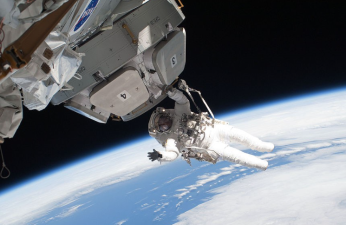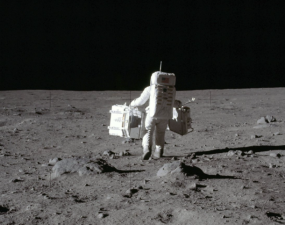Exploring the universe is one of humanity's ultimate dreams. Since the invention of the telescope, humanity has embarked on this quest.
With the advancement of science and technology, our understanding of the universe has deepened. So, what can we gain from exploring the universe?
Technical Challenges in Exploring the Universe
On the road to exploring the universe, humanity faces a series of technological challenges. To overcome these bottlenecks, we need to deeply research and master a series of key technologies. These technologies include not only the design and manufacture of spacecraft and the improvement of space exploration methods, but also theoretical explanations and empirical research into the mysteries of the universe. By comprehensively applying these technologies, humanity hopes to gain a deeper understanding of the universe and further expand the boundaries of our knowledge.
[Key Scientific and Technological Breakthroughs]
In the process of exploring the universe, humanity has achieved numerous breakthroughs through improved technologies and tools. From initial Earth observations to deep space exploration, each technological advancement has brought new discoveries and insights. In particular, humanity has made remarkable achievements in the development of manned spaceflight and space exploration equipment, laying a solid foundation for subsequent space exploration.
Space exploration expands the boundaries of human cognition
- Space exploration has given us a whole new understanding of the universe
In the past, we could only speculate about the mysteries of the universe through limited astronomical observations. Now, spacecraft, such as probes and satellites, allow us to observe celestial bodies up close. For example, the Hubble Space Telescope has revealed the vibrant colors of distant galaxies. The details of spiral and elliptical galaxies have given us a clearer understanding of galactic evolution. Previously, we believed the solar system was just what we see, with a few planets orbiting the sun. However, space exploration has discovered regions like the Kuiper Belt, home to a vast number of small celestial bodies. This has revealed that the solar system is much larger than we imagined and has opened new avenues for thinking about its formation and evolution.
- Space exploration has also refreshed our understanding of the laws of physics
On Earth, many physical experiments struggle to achieve ideal conditions due to various environmental factors. However, in the microgravity of space, scientists have discovered many fascinating phenomena. For example, some liquids appear perfectly spherical in space, something rarely seen on Earth. Furthermore, gravitational experiments conducted in space have allowed us to delve deeper into the nature of gravity. Perhaps one day, we'll find a theory that unifies gravity with other fundamental forces, which would fundamentally change our understanding of the universe.
- Space Exploration Promotes Scientific and Technological Advances
- Space exploration has significantly advanced materials science
To meet the specialized requirements of space equipment, such as high-temperature resistance, high strength, and low density, scientists have developed a range of new materials. For example, carbon fiber composites, with their high strength and lightweight, are now widely used in aerospace and are also increasingly finding applications in the automotive and sporting goods industries. Shape memory alloys, which can change shape and return to their original form at varying temperatures, have important applications in space temperature control systems and are now also being used in medical devices such as stents.
- In Communications Technology
Satellite communications enable real-time global communication.
Previously, long-distance communications suffered from significant latency. Now, through satellite relays, information can be rapidly transmitted around the world. For example, ships sailing on the oceans and scientific expeditions in remote areas can maintain close contact with the outside world through satellite communications. Furthermore, services like satellite TV and satellite phones have become part of our lives, making the world smaller and more connected.
- Space exploration has also driven the development of energy technology.
Solar energy is a clean energy source, but on Earth, it is limited by weather and geographical location. In space, however, solar energy is virtually unaffected by these factors, and its intensity is high. Scientists are researching how to efficiently collect and utilize solar energy in space. A breakthrough could provide humanity with an inexhaustible supply of clean energy, completely resolving the energy crisis.






